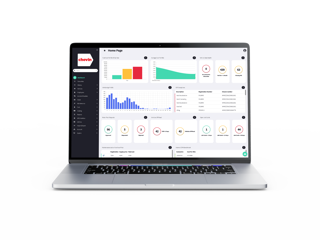Mileage is invariably the main driver of fleets’ operating costs and carbon footprint and, according to Paul Jackson, managing director of TMC (The Miles Consultancy), it is only after businesses put proper controls on mileage that they discover the cost, particularly in terms of mileage reimbursement.
TMC calculates that since 2009 the price of fuel has risen seven times as fast as average employee earnings.
“Mileage misreporting is endemic in some organisations and it adds up to a massive cost burden on employers. We estimate that it adds more than £1.5 billion a year to the cost of doing business in the UK,” says Jackson.
TMC claims companies that implement proactively audited mileage capture typically experience a 25% reduction in fuel and mileage claims.
That is eight times the mileage reduction that managers who responded to the Alphabet survey thought they would be able to achieve in 2012.
Mike Waters, senior insight and consultancy manager at Arval, says: “While selecting the correct has a big impact on environmental output, drivers’ attitude and performance are also critical.
“Planning journeys, driving defensively and at the right speeds will reduce fuel consumption, CO2 and costs. From a well-being perspective, the most fuel efficient drivers tend to also be the safest because they drive smoothly and at lower speeds.
"A growing number of companies invest in driver training to educate drivers and reduce their ongoing costs and environmental impact.”
Another key benefit of going green is the desire of businesses to display their corporate social responsibility.
Waters said: “A large number of organisations will look to limit their environmental impact in order to support their corporate reputation and will also expect the same of the businesses that they work with.
"So the ability to demonstrate a sustainable approach to the fleet is important.”
Indeed, it is likely to become even more critical following the Government’s decision to introduce mandatory greenhouse gas emission reporting for publicly quoted companies from April 2013.
The regulations could also be extended to all large companies – a potential 31,000 businesses.
The draft regulations – currently out for consultation – call on companies to include emissions from vehicles “owned or controlled” by companies in their reports.




















Login to comment
Comments
No comments have been made yet.